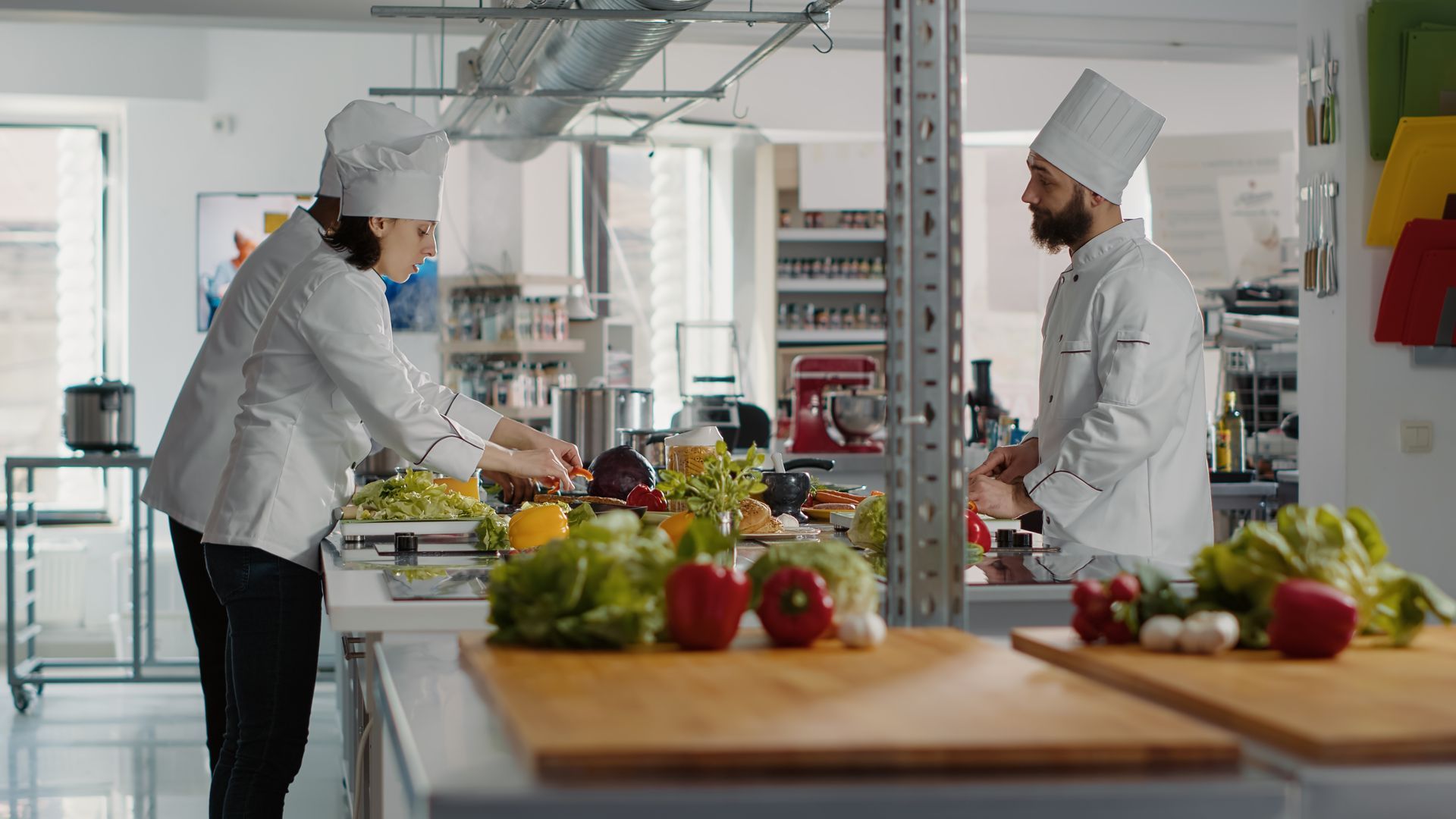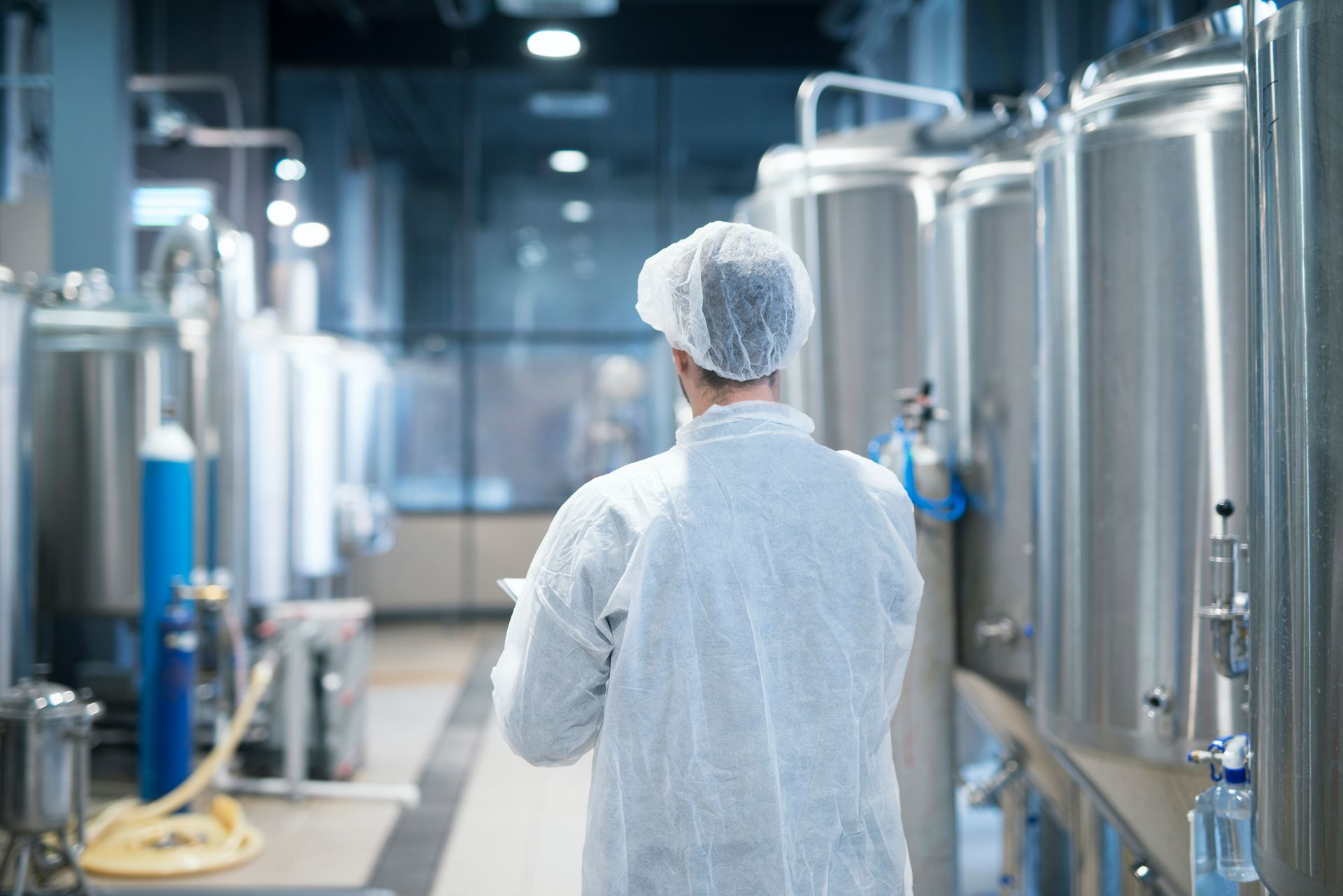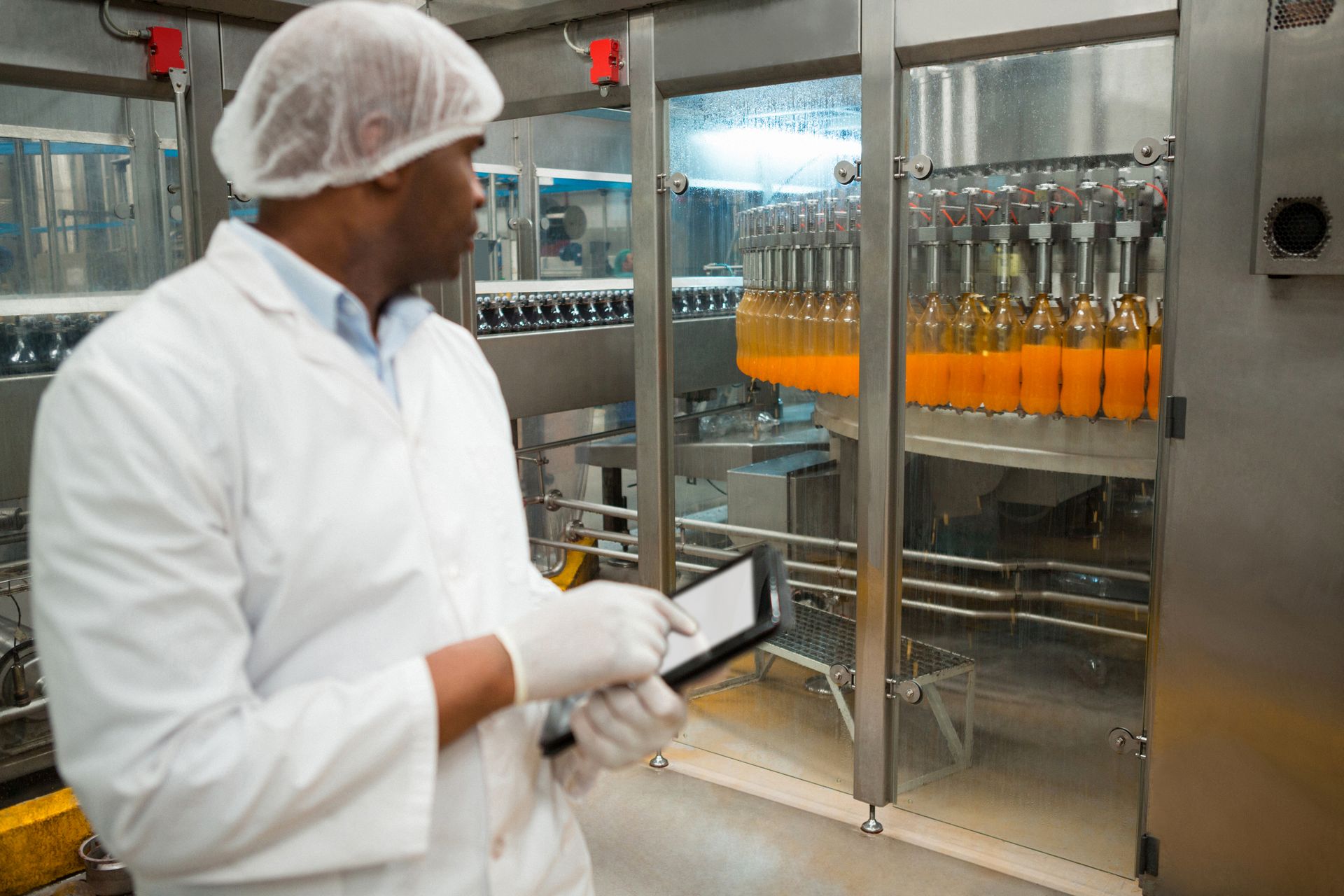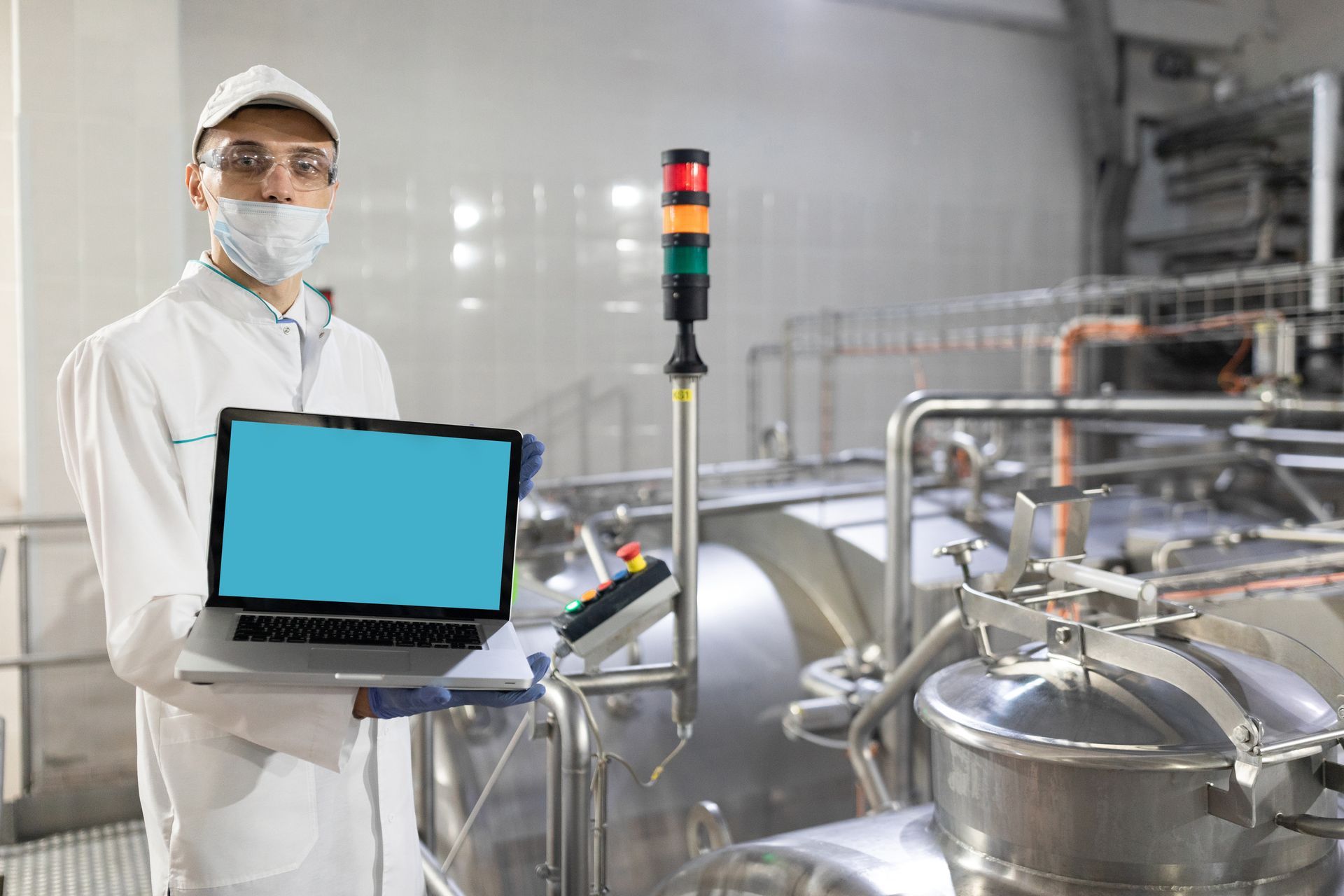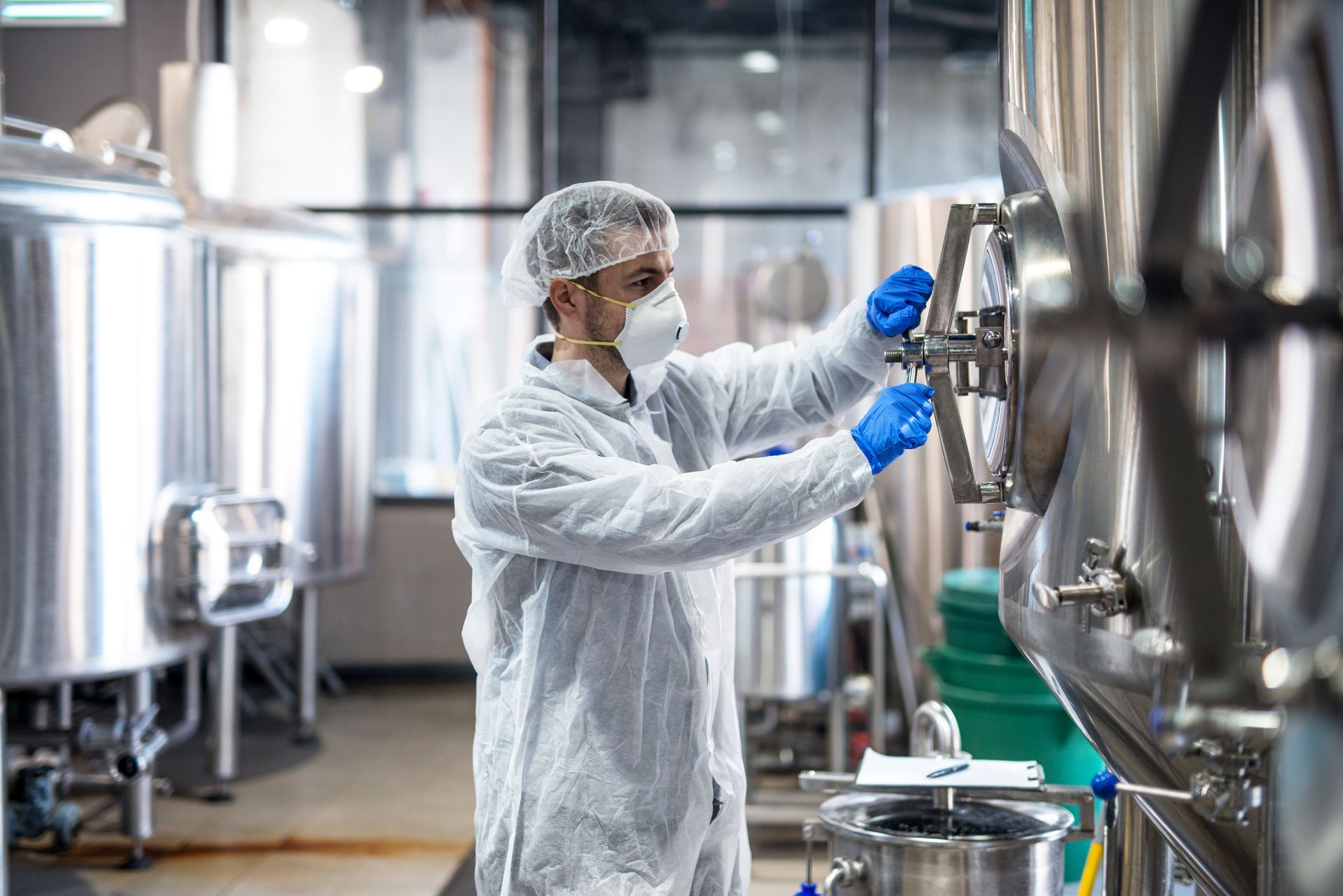Food Manufacturer Insurance in California
Index
Understanding Food Manufacturers Insurance
Types of Coverage for Food Manufacturers
California Specific Regulations for Food Manufacturers Insurance
Selecting the Right Insurance Provider
Managing Risks in the Food Manufacturing Industry
Contact Us
Phone
886-226-4436
Location
9340 Bolsa Ave, Westminster, CA 92683
Food manufacturers insurance is an essential component of any food manufacturing business in California. It provides
protection against various risks and liabilities that may arise during the production, distribution, and sale of food products. Understanding the basics of food manufacturers insurance, the types of coverage available, California-specific regulations, and how to select the right insurance provider are crucial for the success and security of your food business. Additionally, managing risks in the food manufacturing industry through insurance can help mitigate potential challenges and ensure the continuity of your operations.
Understanding Food Manufacturers Insurance
Food manufacturers insurance is a specialized type of commercial insurance designed to address the unique risks faced by businesses involved in the production and distribution of food products. It provides coverage for property damage, liability claims, and workers' compensation, among other potential issues. By investing in comprehensive insurance coverage, food manufacturers can protect themselves financially from unforeseen events that could otherwise have severe consequences.
When it comes to food manufacturers insurance, there are several key aspects that business owners need to understand. Let's delve deeper into the basics of this type of insurance and why it is so important for those in the food industry.
The Basics of Food Manufacturers Insurance
The basics of food manufacturers insurance typically include coverage for property damage, equipment breakdown, spoilage, product liability, and business interruption. Property insurance provides protection for physical assets such as buildings, machinery, and inventory in case of fire, natural disasters, or theft. It ensures that food manufacturers can recover financially if their essential assets are damaged or destroyed.
Equipment breakdown coverage is another crucial component of food manufacturers insurance. It safeguards against mechanical failures that could disrupt production processes. In the fast-paced world of food manufacturing, any downtime can result in significant financial losses. With equipment breakdown coverage, food manufacturers can have peace of mind knowing that they are protected in the event of unexpected machinery failures.
Spoilage insurance is essential for perishable goods, as it covers financial losses resulting from spoilage or contamination. Imagine a scenario where a power outage occurs, causing refrigeration systems to fail and spoilage of valuable food products. Spoilage insurance can help food manufacturers recoup their losses and continue their operations without suffering a severe financial blow.
Product liability insurance is another critical aspect of food manufacturers insurance. It protects food manufacturers from legal claims arising from harm caused by consuming their products. In the unfortunate event that a consumer falls ill or experiences adverse effects from a food product, product liability insurance can provide financial protection against potential lawsuits and legal expenses.
Business interruption coverage is yet another vital component of food manufacturers insurance. It provides financial support if operations are temporarily suspended due to an insured event, such as a fire or flood. This coverage helps cover ongoing expenses, such as payroll and rent, during the downtime, ensuring that the business can bounce back swiftly once operations resume.
Importance of Insurance for Food Manufacturers
Food manufacturing businesses face unique risks due to the nature of their operations. Contaminated ingredients, equipment malfunctions, product recalls, and other unforeseen events can lead to substantial financial losses and damage to reputation. Having the right insurance coverage in place is crucial for mitigating these risks and ensuring the long-term success of your business.
Without insurance, food manufacturers may be responsible for covering the costs of property damage, legal fees, medical expenses, and compensation for affected individuals. These expenses can quickly escalate and have devastating financial consequences. By having appropriate insurance coverage, food manufacturers can protect themselves from these potential liabilities and focus on running their business with peace of mind.
Moreover, insurance coverage for food manufacturers not only protects the business but also provides reassurance to customers, suppliers, and investors. It demonstrates a commitment to safety, quality, and responsible business practices. This can enhance the reputation of the food manufacturer and build trust among stakeholders, ultimately leading to increased business opportunities and growth.
In conclusion, food manufacturers insurance is a critical investment for businesses in the food industry. It offers comprehensive coverage for property damage, liability claims, and other potential risks specific to food manufacturing. By having the right insurance coverage in place, food manufacturers can protect themselves financially, ensure business continuity, and maintain a positive reputation in the industry.
Types of Coverage for Food Manufacturers
Food manufacturers insurance typically includes different types of coverage to address the specific risks faced by the industry. Understanding these key coverages can help you assess your insurance needs and select the right policies for your business.
Property Insurance for Food Manufacturers
Property insurance is a fundamental component of food manufacturers insurance. It covers physical assets such as buildings, equipment, and inventory against losses caused by fire, vandalism, theft, and other perils specified in the policy. In California, where wildfires and earthquakes are common, having adequate property insurance coverage is crucial for food manufacturers.
Property insurance can also provide coverage for business interruption, which compensates businesses for lost income and ongoing expenses if operations are interrupted or suspended due to a covered event. This coverage ensures that food manufacturers can continue to meet financial obligations and recover more quickly after a significant loss.
Moreover, property insurance can offer additional benefits such as coverage for spoilage or contamination of perishable goods. This is especially important for food manufacturers who deal with products that have a limited shelf life and are susceptible to spoilage or contamination if proper storage conditions are not maintained.
Liability Insurance for Food Manufacturers
Liability insurance is another crucial coverage for food manufacturers. It protects businesses from legal claims and lawsuits related to bodily injury or property damage caused by their products. Product liability insurance, in particular, is essential in the food industry, where the consumption of contaminated or improperly labeled products can lead to serious health risks.
Liability insurance also includes coverage for legal defense costs, settlements, judgments, and medical expenses. It provides financial protection and ensures that food manufacturers can handle claims promptly and professionally, safeguarding their reputation and financial stability.
Additionally, liability insurance can offer coverage for advertising and personal injury claims. This protects food manufacturers from claims arising from issues such as defamation, copyright infringement, or false advertising, which are common in the highly competitive food industry.
Workers Compensation Insurance
Workers compensation insurance is mandatory in California for businesses with employees. It provides coverage for medical expenses, lost wages, and rehabilitation services for employees who are injured or become ill on the job. In the food manufacturing industry, where workers may be exposed to various hazards and repetitive tasks, having workers compensation insurance is crucial to protect both the employees and the business.
Workers compensation insurance not only ensures that injured employees receive the necessary medical care and support but also safeguards food manufacturers from potential legal claims and penalties resulting from workplace injuries or illnesses.
Moreover, workers compensation insurance can offer additional benefits such as coverage for vocational rehabilitation, which helps injured employees return to work by providing training and support to develop new skills or adapt to their work environment after a disability.
As you can see, food manufacturers insurance encompasses various coverages to address the specific risks faced by the industry. By understanding these coverages and their additional benefits, you can make informed decisions to protect your business and ensure its long-term success.
California Specific Regulations for Food Manufacturers Insurance
California has specific regulations and requirements for food manufacturers insurance to ensure the safety and well-being of consumers and the integrity of the food supply chain.
State Requirements for Food Manufacturers Insurance
Food manufacturers in California must comply with state regulations regarding insurance coverage. The specific requirements may vary depending on the size and nature of the business, but certain coverages, such as general liability and workers compensation, are generally mandatory.
It's essential for food manufacturers to stay informed about the current regulations and fulfill their insurance obligations to avoid penalties and potential legal issues. Working with an experienced insurance provider who understands the unique requirements for food manufacturing businesses in California can help ensure compliance and adequate coverage.
Understanding California's Food Safety Laws
In addition to insurance requirements, food manufacturers in California must adhere to comprehensive food safety laws and regulations to protect public health. These regulations cover aspects such as proper labeling, storage, handling, and transportation of food products.
Compliance with food safety laws is essential for maintaining consumer trust and reputation in the industry. Insurance coverage tailored to the specific risks of the food manufacturing industry can help businesses meet these requirements and handle potential violations promptly and effectively.
Selecting the Right Insurance Provider
Choosing the right insurance provider is a critical decision for food manufacturers seeking comprehensive coverage and reliable support. Consider the following factors when evaluating insurance providers:
Factors to Consider When Choosing an Insurance Provider
Look for insurance providers with experience in the food manufacturing industry. They will have a better understanding of the unique risks and specific coverage needs. Additionally, consider their financial stability, customer service, claims handling process, and reputation within the industry.
It's also important to review the policy terms and conditions, including coverage limits, deductibles, and exclusions. Ensure that the selected insurance provider offers tailored solutions that address your business's specific needs and risks.
Evaluating Insurance Policies for Your Food Business
When comparing insurance policies, carefully review the coverage provided for property damage, liability claims, business interruption, spoilage, and workers compensation. Assess the limits and deductibles to ensure they align with your food manufacturing business's assets and potential liabilities.
Consider the additional services and resources offered by insurance providers, such as risk assessment, loss control, and claims management. These value-added services can contribute to the overall risk management and success of your food business.
Managing Risks in the Food Manufacturing Industry
The food manufacturing industry inherently carries various risks, including product contamination, supplier issues, equipment failures, and supply chain disruptions. Insurance plays a crucial role in managing these risks and minimizing the potential impact on your business.
Common Risks in the Food Manufacturing Industry
One of the most significant risks faced by food manufacturers is product contamination, which can lead to foodborne illnesses and recalls. Contaminated ingredients or processing equipment, improper storage conditions, or inadequate sanitation practices are all factors that can contribute to the risk of contamination.
Supplier issues, such as disruptions in the supply chain or the quality of ingredients, can also pose significant challenges for food manufacturers. Equipment failures and breakdowns can result in production delays, financial losses, and potential harm to workers. Environmental factors, natural disasters, and regulatory changes are additional risks that food manufacturers must consider.
How Insurance Can Mitigate These Risks
Insurance can help mitigate these risks by providing coverage for property damage, product liability claims, business interruption, and workers compensation. It can also offer risk management resources to help food manufacturers identify and implement best practices to reduce the likelihood of incidents.
For example, a comprehensive insurance policy can provide financial protection in case of a product recall, covering the costs of notifying consumers, retrieving products, and potential legal claims. Workers compensation insurance can facilitate the provision of necessary medical care, lost wages, and rehabilitation services for injured employees, ensuring their well-being and minimizing the financial impact on the business.
By investing in the right insurance coverage and working with experienced providers, food manufacturers can proactively manage risks and protect their business's future.
In conclusion, food manufacturers insurance is an essential aspect of running a successful food business in California. By understanding the basics of this insurance coverage, selecting the right provider, and complying with California's specific regulations, food manufacturers can effectively mitigate risks, protect against liabilities, and ensure the continuity of their operations. Investing in comprehensive insurance coverage tailored to the unique risks of the food manufacturing industry is a vital step towards securing the success of your business.
How much is $1,000,000 liability insurance a month?
The cost of a $1,000,000 liability insurance policy for a business typically ranges from $50 to $200 per month, depending on factors such as the type of business, its location, and the level of risk associated with its operations. For food manufacturers, additional considerations such as product liability and food safety can influence the cost. It's always a good idea to consult with an insurance agent to get an accurate quote for your specific needs.
How much is food manufacturing insurance?
Obtaining food manufacturing insurance in Antarctica is uncommon due to the continent's lack of a permanent civilian population and commercial food production facilities. Most insurance providers do not offer policies specific to Antarctica. However, if your operations involve transporting food to Antarctica or conducting research there, it's essential to have comprehensive coverage. Costs for such specialized insurance can vary widely based on factors like the nature of your activities, coverage limits, and the duration of your operations. It's advisable to consult with insurance providers who specialize in polar regions or international operations to obtain accurate quotes tailored to your specific needs.
How much is a $2 million dollar general liability insurance policy for a business?
For a $2 million liability policy, you can expect to pay between $500 and $1,500 annually for general liability coverage. As with other types of insurance, the exact cost for a food manufacturing business will depend on several factors, including the scale of your operation, the types of food products you produce, and your risk exposure. A detailed review by an insurance agent will ensure you get the best rate for your business
How much does $100,000 liability insurance cost?
The cost for $100,000 in general liability insurance can range from $250 to $1,000 per year, depending on the industry and the level of risk involved. Food manufacturers, for instance, may have higher premiums due to the potential for foodborne illness outbreaks, product recalls, and other risks. To ensure you get the most competitive price, it's a good idea to request multiple quotes and tailor the coverage to your business’s unique risks.
REQUEST A QUOTE
Speak with a CA Food Manufacturer Insurance specialist today!
Get started today!
Prefer to speak with an agent now?


